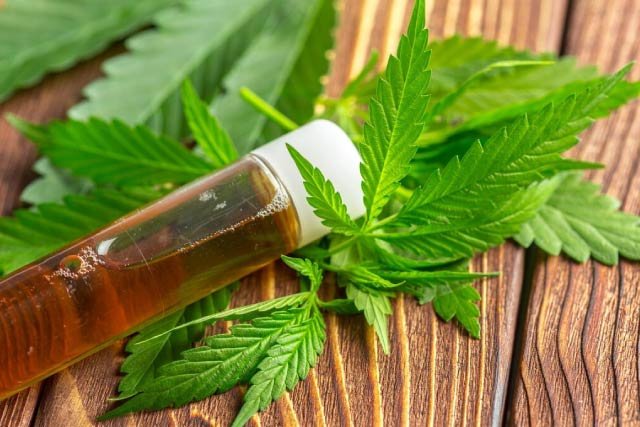The world of hemp-derived delta-9 THC is a dynamic and evolving landscape influenced by both federal and state regulations. As attitudes towards cannabis shift, so does the legal status of delta-9 THC. This comprehensive guide aims to provide a detailed overview of the legal landscape, recent legislative developments, and the specific status of delta-9 THC in various states.
Hemp-derived delta-9 THC, a compound found in cannabis plants, has gained popularity for its potential therapeutic effects. However, its legal status is a subject of constant change, shaped by federal regulations and individual state laws.
Understanding Delta-9 THC

Delta-9 THC is one of the many cannabinoids found in the cannabis plant. Unlike its close relative, CBD, delta-9 THC is known for its psychoactive properties. While federal law distinguishes hemp from marijuana based on THC content, the legal limit of 0.3% THC has created a nuanced regulatory environment.
Federal Regulations: The Farm Bill

The Agricultural Improvement Act of 2018, commonly known as the Farm Bill, legalized the cultivation and sale of hemp and its derivatives, including delta-9 THC, with certain restrictions. The bill removed hemp from the list of controlled substances but imposed a THC limit of 0.3% on a dry-weight basis.
Recent Legislative Developments

1. California’s Evolving Regulations
California, known for its progressive stance on cannabis, has recently introduced AB-45, which imposes a restrictive potency rule on hemp delta-9 products. Intoxicating products exceeding 0.3% THC, including delta-8 delta-9, and delta-10, can no longer be considered hemp. The state is also considering additional regulations based on product type and cannabinoid ratios.
2. Colorado’s Conversions Clarification
Colorado clarified in 2021 that converting cannabinoids from industrial hemp, including transforming CBD isolate into delta-9 THC, is non-compliant. This clarification presents a challenge for manufacturers and consumers in the state.
3. North Dakota’s Stringent Isomerization Ban
North Dakota allows hemp delta-9 but prohibits chemical cannabinoid conversions, explicitly stating that hemp licensees cannot engage in isomerization to create THC isomers, limiting the availability of delta-9 products.
4. Washington’s Prohibition on Conversions
Washington State prohibits the conversion of CBD or hemp to delta-8 THC or delta-9 THC, impacting the production and sale of hemp delta-9 products.
5. Idaho’s Ongoing Strict Prohibition
Idaho maintains a rigid stance against hemp delta-9 products, explicitly banning the sale of consumer products containing any THC.
6. Ongoing Disputes in Kentucky, Pennsylvania, Vermont, and Arizona
While these states presently allow hemp delta-9 products, ongoing disputes, and legislative attempts may impact their status in the future.
Delta-9 THC’s Legal Standing by State: Detailed Analysis

For a more detailed understanding of the legal status of delta-9 THC in each state, let’s delve into specific considerations for a selection of states.
Alabama
Alabama allows hemp-derived delta-9 THC under the Farm Bill’s definition, enabling the purchase of legal delta-9 cartridges and gummies complying with legal limits.
Alaska
Alaska does not explicitly ban hemp-derived delta-9 products, permitting processed industrial hemp products with up to 50 milligrams of delta-9 THC per individual product.
Arkansas
Recent amendments in Arkansas include all THC isomers in the 0.3% limit, affecting the legality of some hemp delta-9 products.
California
Despite recent restrictions, hemp delta-9 THC is legal in California. However, certain product types, like THC isolates, are now forbidden.
Colorado
Hemp-derived delta-9 THC is technically legal in Colorado, but the recent clarification regarding cannabinoid conversions complicates the market.
Florida
Florida allows hemp-derived delta-9 THC, with the state’s hemp program aligning with federal regulations.
Georgia
Hemp delta-9 is legal in Georgia, but recent discussions about potential restrictions indicate a dynamic regulatory environment.
Hawaii
Hawaii permits the sale and use of hemp delta-9 products, but consumers should stay informed about any legislative changes.
Idaho
Idaho remains steadfast in its prohibition of hemp delta-9 products, taking an uncompromising stance against any THC presence.
Illinois
Hemp delta-9 THC is legal in Illinois, aligning with federal regulations. However, consumers should be aware of evolving laws.
Indiana
While Indiana generally allows hemp delta-9 products, consumers must stay informed about any future regulatory adjustments.
Iowa
Iowa permits the sale and use of hemp delta-9 THC, provided products comply with federal THC limits.
Kansas
Kansas allows hemp delta-9 products as long as they adhere to the 0.3% THC limit set by the 2018 Farm Bill.
Kentucky
Kentucky presently allows hemp delta-9 products, but ongoing legislative discussions may impact the market.
Louisiana
Louisiana permits the sale and use of hemp delta-9 THC, with state regulations aligning with federal laws.
Maine
Maine’s hemp program allows for the legal sale and consumption of hemp delta-9 THC, adhering to federal guidelines.
Maryland
Maryland permits the sale of hemp delta-9 products, but consumers should be aware of evolving state laws.
Massachusetts
Massachusetts allows the sale and use of hemp delta-9 THC, with state regulations aligning with federal laws.
Michigan
Michigan permits the sale and use of hemp delta-9 THC, aligning with federal regulations.
Minnesota
Minnesota generally allows hemp delta-9 products, but consumers should stay informed about any future regulatory adjustments.
Mississippi
Mississippi permits the sale and use of hemp delta-9 THC, provided products comply with federal THC limits.
Missouri
Missouri allows hemp delta-9 products, but consumers should stay informed about any future regulatory adjustments.
Montana
Montana permits the sale and use of hemp delta-9 THC, with state regulations aligning with federal laws.
Nebraska
Nebraska allows hemp delta-9 products as long as they adhere to the 0.3% THC limit set by the 2018 Farm Bill.
Nevada
Nevada permits the sale and use of hemp delta-9 THC, with state regulations aligning with federal laws.
New Hampshire
New Hampshire allows hemp delta-9 products as long as they adhere to the 0.3% THC limit set by the 2018 Farm Bill.
New Jersey
New Jersey permits the sale and use of hemp delta-9 THC; furthermore, state regulations align with federal laws.
New Mexico
New Mexico allows hemp delta-9 products as long as they adhere to the 0.3% THC limit set by the 2018 Farm Bill.
New York
New York permits the sale and use of hemp delta-9 THC; moreover, state regulations align with federal laws.
North Carolina
North Carolina generally allows hemp delta-9 products, but consumers should stay informed about any future regulatory adjustments.
North Dakota
While North Dakota technically allows hemp delta-9, recent amendments prohibiting chemical cannabinoid conversions may limit product availability.
Ohio
Ohio allows hemp delta-9 products as long as they adhere to the 0.3% THC limit set by the 2018 Farm Bill.
Oklahoma
Oklahoma permits the sale and use of hemp delta-9 THC, aligning with federal regulations.
Oregon
Oregon allows the sale and use of hemp delta-9 THC, with state regulations aligning with federal laws.
Pennsylvania
While presently allowing hemp delta-9 products, Pennsylvania is undergoing legislative discussions that may impact the market.
Rhode Island
Rhode Island permits the sale and use of hemp delta-9 THC, with state regulations aligning with federal laws.
South Carolina
South Carolina generally allows hemp delta-9 products, but consumers should stay informed about any future regulatory adjustments.
South Dakota
South Dakota explicitly bans hemp-derived delta-9 THC, taking a strict stance against any THC presence in hemp products.
Tennessee
Tennessee allows hemp delta-9 products as long as they adhere to the 0.3% THC limit set by the 2018 Farm Bill.
Texas
Texas generally allows hemp delta-9 products, but consumers should stay informed about any future regulatory adjustments.
Utah
Utah allows the sale and use of hemp delta-9 THC, with state regulations aligning with federal laws.
Vermont
While Vermont presently allows hemp delta-9 products, ongoing discussions about regulations may impact the market.
Virginia
Virginia permits the sale and use of hemp delta-9 THC, with state regulations aligning with federal laws.
Washington
Washington, despite legalizing hemp under the Farm Bill definitions, prohibits cannabinoid conversions, affecting the availability of hemp delta-9 products.
West Virginia
West Virginia generally allows hemp delta-9 products, but consumers should stay informed about any future regulatory adjustments.
Wisconsin
Wisconsin allows hemp delta-9 products as long as they adhere to the 0.3% THC limit set by the 2018 Farm Bill.
Wyoming
Wyoming permits the sale and use of hemp delta-9 THC, aligning with federal regulations.
Conclusion
Understanding the legal status of delta-9 THC is crucial for consumers, producers, and policymakers alike. With varying state regulations and ongoing legislative developments, staying informed about the legal landscape is paramount. Whether you are in a state with permissive laws, evolving regulations, or strict restrictions, being aware of the nuances surrounding delta-9 THC is essential for making informed decisions.
In conclusion, as societal attitudes towards cannabis continue to evolve, so will the legal framework surrounding delta-9 THC. It is advisable for individuals involved in the hemp industry or consumers of hemp delta-9 products to stay updated on legislative changes and to navigate the ever-changing landscape responsibly.




